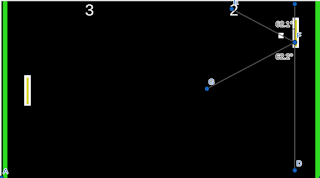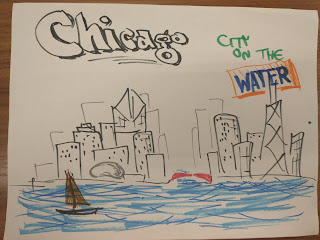THE WORLD'S CRAZIEST KITE... and COMBINATIONS.
Pascal's Triangle is a really neat pattern of numbers. The numbers in Pascal's Triangle represent mathematical combinations, given by the formula:
nCr = n! / (r!)(n-r!)
For example, if I have 10 people in a room, and I need to choose 3 people to join my team on a GCE scavenger hunt, there are 10C3 = 10! / 3! x 7! = 120 ways to choose 3 people.
Look at Pascal's Triangle:

The numbers in this triangle relate to the value in the formula above.
Now, here's a very interesting kite picture. From more than 100 years ago!
What is that crazy thing?? It's a kite created by Alexander Graham Bell (do you know who he is? You probably own something he invented!!) based on a geometric shape called a Sierpenski Triangle. I think it's incredibly cool. I like how the person is holding the kite with what looks like a fishing pole in the bottom of the picture.
And you know what, Sierpenski Triangles 'live' inside of the Pascal Triangle, too. What if you made a Pascal triangle but colored each even number with one particular color (blue) and each odd number with another color (red)? Look at the result!

That resembles the 100-year old kite! What came first? The kite, or the math?
I think the math involved in Pascal's Triangle provides a lot of room to investigate new topics. And it has very interesting applications.
nCr = n! / (r!)(n-r!)
For example, if I have 10 people in a room, and I need to choose 3 people to join my team on a GCE scavenger hunt, there are 10C3 = 10! / 3! x 7! = 120 ways to choose 3 people.
Look at Pascal's Triangle:
The numbers in this triangle relate to the value in the formula above.
Now, here's a very interesting kite picture. From more than 100 years ago!
What is that crazy thing?? It's a kite created by Alexander Graham Bell (do you know who he is? You probably own something he invented!!) based on a geometric shape called a Sierpenski Triangle. I think it's incredibly cool. I like how the person is holding the kite with what looks like a fishing pole in the bottom of the picture.
And you know what, Sierpenski Triangles 'live' inside of the Pascal Triangle, too. What if you made a Pascal triangle but colored each even number with one particular color (blue) and each odd number with another color (red)? Look at the result!
That resembles the 100-year old kite! What came first? The kite, or the math?
I think the math involved in Pascal's Triangle provides a lot of room to investigate new topics. And it has very interesting applications.



Comments
Post a Comment